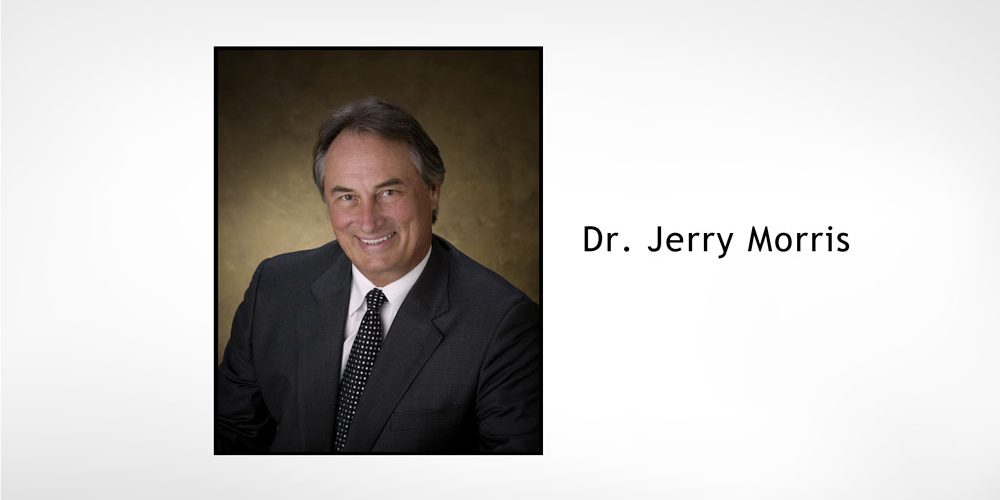An interview with Dr. Jerry Morris for our professional audience.
Marc Braman, MD (MB):
So I thought I’d share with our professional audience, in the lifestyle medicine community, some of our conversation with Dr. Jerry Morris. Dr. Morris is one of our resident experts for the Lifestyle Facts Project, but is also really involved in pushing envelope and working with systems and governments and teams in hospitals in operationalizing some of the changes happening in healthcare, and doing so with an eye to lifestyle medicine sorts of things. So as we were creating some of this content for consumers, we wanted to share some of this other information for our professional audience. Dr. Morris, thank you for sharing this with us.
Jerry Morris, PsyD (JM):
Glad to be here, Marc.
MB:
You and I were just talking about diabetes. It’s obviously a major lifestyle medicine related condition. You’re working on some of these changes and implementing these processes. Can you share with us what you’re involved with and what the future of diabetes care is going to be?
JM:
Sure. It’s a pretty exciting era for those of us who believe in lifestyle medicine, team work, and really total healthcare being the long range future. Under the New Affordable Care Act, the concept of integrated and collaborative care is the cornerstone. And in terms of diabetes, what that’s going to look like are these patient-centered healthcare homes, and diabetes being one of what they’re calling the population-based care focus. In other words, the big eight diseases that have been named so far by HEW and others to be named later that are costing so much because we’re having low outcomes are going to be the focus. And in case of diabetes, the idea that adherence is a problem, the idea that getting the family behind the total healthcare so that you have a vessel to pour the patient into that keeps them involved in their disease management, that changes the behavior and the lifestyle so that you’re not only getting the A1c in the right category, you’re not only getting the proper medications, but now you’re making the long-term changes at the same time that will help the person do what they need to do to change.
JM:
And so in the new healthcare home and in the disease management programs, the government is putting a lot of funding into training physician champions, nurse case managers, behavior health consultants, that’ll be psychologists or social workers, to add to that team a statistician because as we do annual contracting based on performance, the team and the facility and the program will have to show that they outperformed competitors that will try to bid for these population interventions. We’re shifting now to a management of that team, and it’s an asymmetrical team. In other words, every discipline on the team is collaborating to make sure that they put into the change those things they’re trained to do. And so the physicians not on an island anymore to have to in the average 13-minute visit influence the person with this chronic disease to change their whole life, but they have a team of professionals.
MB:
And was that an…un-asymmetrical team, or a symmetrical team?
JM:
It’s an symmetrical…a symmetrical. Not asymmetrical. In other words, instead of the old hierarchy where the physician is responsible for everything that happens and think of everything in all the other disciplines and to do that in the average 13-minute visit, they now have people who are experts in behaviorism and in reinforcement theory and breaking down resistance with behaviors, getting the family engaged and involved, increasing adherence.
MB:
So a true team, it’s not all on the doc’s shoulders.
JM:
Yeah. And the doc now can use that great brain and great medical training and that great caring for the patient to help them engage in changing their disease, not just an intervention.
MB:
Okay, excellent. And then, part of what we were talking about is how with this team approach, it starts to sound like a one-size-fits-all, but is not really.
JM:
It’s not really. That’s a good point. In the past, we’ve said you have type 1 or type 2 diabetes, a lot of physicians if you have type 1, they turf you off to the endocrinologist or specialist and they lose a lot of track of treating you on that disease. And type 2 diabetes, they give you some brief education, regimens, some medications, they check you periodically with labs, but that’s their intervention, and it’s almost a one-size-fits-all. There’s very little variance in that protocol. Under the new system, we recognize that every individual is different, so components of their disease management will be more influential in one person than another. So that, for instance, in some people, if their family is multi-generationally, nutritionally impaired, it’s going to be very difficult for them to make this change in that great powerful context.
JM:
Another family, the big adherence problem may be that they’re just fairly rigid. They’re not interested in a lot of contact with medical professionals and they have some resistance in attitude to following up on what we say. And physicians know this on type 2 diabetic patients. As soon as they get to feeling better for a while, what do they do?
MB:
Yeah, who needs to do this?
JM:
They drop out of the regimen, yeah.
MB:
Yeah, excellent.
JM:
So one size really doesn’t capture it. You gotta have this team of experts that’s in for the long haul and that really wants to improve your health through lifestyle and a combination of different treatment playing components that can help you survive in the long run and have wellness and well-being.
MB:
So with that team, you can adapt to the patient’s needs in a given point in time or a given personality.
JM:
Sure.
MB:
And adjust as needed going forward, which sounds great. Now you were mentioning some opportunities and some funding things that are going on. Could you share with this professional community what’s happening on that level?
JM:
Yeah, this is going to be an exciting time for professionals, once we all get by the insecurity, the stress of change and the anxiety. I wrote a paper in a recent book on medical psychology called the Golden Age of Psychology, trying to tell them it’ll be okay. They’re buying up private practices, they’re integrating them into systems, but it’ll be okay. Because what’s going to happen is they’re going to put us on salary, but we’ll have batting average, we’ll have people to help us on the team achieve success in those batting averages or outcomes. And they’re going to contract on outcomes. Capitalism is coming to healthcare. And so we’re going to be in a position where everything’s different, but here’s what’s good.
JM:
Right now, there’s lots of revenue in grants to teach physician champions and behavioral health consultants and nurse case managers, and people to adapt to the patient-centered healthcare home, and the disease management projects. They’re just funding these right and left now because they know they’ve gotta change our culture, they’ve gotta quell our anxiety, they’ve gotta break down our resistance, they’ve gotta show us how to do this until we see it successful and we believe in it and we invest in it. So there’s lots of opportunities. I’m working in some grant programs that are well-funded. They’re patient with us, they’re bringing us along, the whole team and every discipline in the team. So that’s going to be available in this. And also, in another area, there’s going to be almost unlimited funding in training case managers and in medication-assisted treatments where physicians in primary care centers are going to work with behavioral health specialist to have to deal with addictions in the primary care center because integrated care means they’re going to first try to do everything the most effective and affordable way through the primary care centers.
MB:
Fascinating. And in terms of private practice, there’s been a big shift towards practices being bought out, physicians becoming employees. Many docs are, as you touched on, anxious about this. And I know there’s activities going on where private practices are starting to form networks and band together. What are the implications for private practice?
JM:
Yeah, they’re clearly targeting, decreasing the number of private practitioners because they had no control over us.
MB:
Right.
JM:
Okay. And there is no uniformity and there is no consistency, and you’re going to see them doing all sorts of things to make consistency and uniformity and the concept of scientifically validated treatment. You’re going to see real resistance to off-label prescribing for instance. You’re going to see real resistance to private practices that aren’t able to be accountable in batting averages and outcome evaluation. And so this makes us all anxious, but that’s coming. Most physicians in their community realize a lot of the medical claims had been bought up by hospital change and things because they know what’s coming.
JM:
The anxiety is about we’ll lose autonomy and control, and I meet with psychologists and physicians all the time about this. In fact, three of my big sinners, I’ve had head hunters trying to buy them out for big medical change because they see what’s coming. [chuckle] So I personally had anxiety. But what will happen as we evolve? These physicians will have a good solid income with lots of experts around them so they can do a lot of very effective things that have been hard to accomplish before. They’ll be needed more than ever because just like I tell the psychologist who say, “Yeah, but I’m going to be supervising a lot of mid-level social workers and counselors and I’m worried about that because of liability and I’ve gotta supervise a lot of people.” But on the other side of it, you’re going to have legs and arms and eyes, and you’re going to be able to integrate to family and the lifestyle and things better than ever before. And when they pay you on a per-patient-per-month basis, guess what? These teams that are very effective, they’re going to become more valuable than ever.
MB:
Yeah.
JM:
And so physician leadership and use of their advanced medical knowledge is going to become more valuable than ever. It’s not just going to be the golden age of psychology, it’s going to be the golden age of lifestyle medicine, trust me.
MB:
Oh, I love it. I love it. So, definitely significant challenges, but also significant opportunities. So I guess, this again re-emphasizes that we as a professional community need to come together for best clinical care and really engage in this process of change that’s taking place.
JM:
That’s exactly right. And one of the things that lifestyle management has done and those that really are sanguine to that philosophy is they’ve been ahead of the curve on this. I mean, you’re preaching to the choir, but if they’ll embrace these teams and go after these grants for training physician champions, which are someone with an open and flexible attitude who’s willing to learn this kind of collaborative teamwork care and long-term health and well-being focus, who better than lifestyle medicine experts to lead that change?
MB:
Right. Excellent. So, to all of our lifestyle medicine colleagues out there, forward.
JM:
Exactly.





